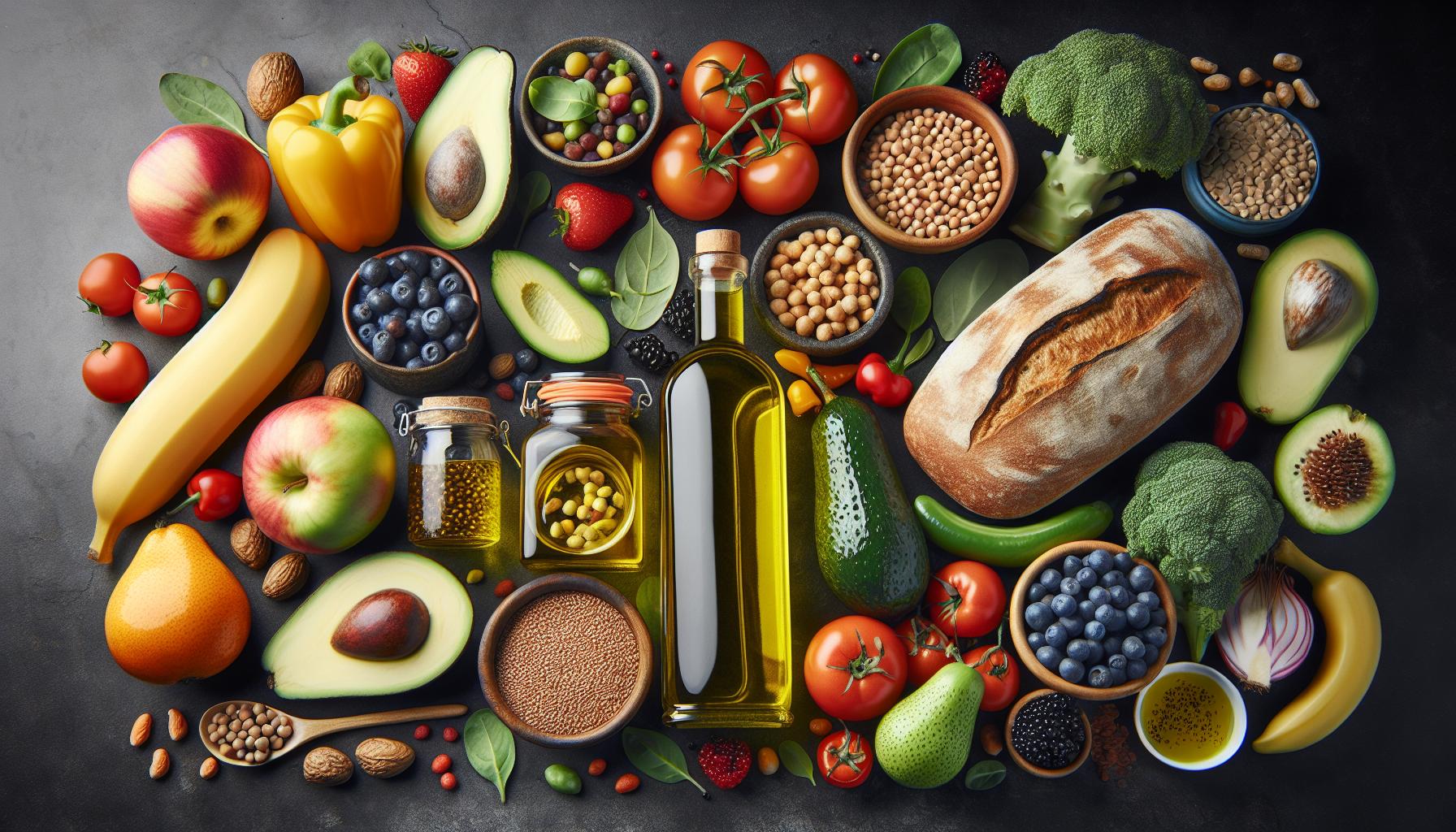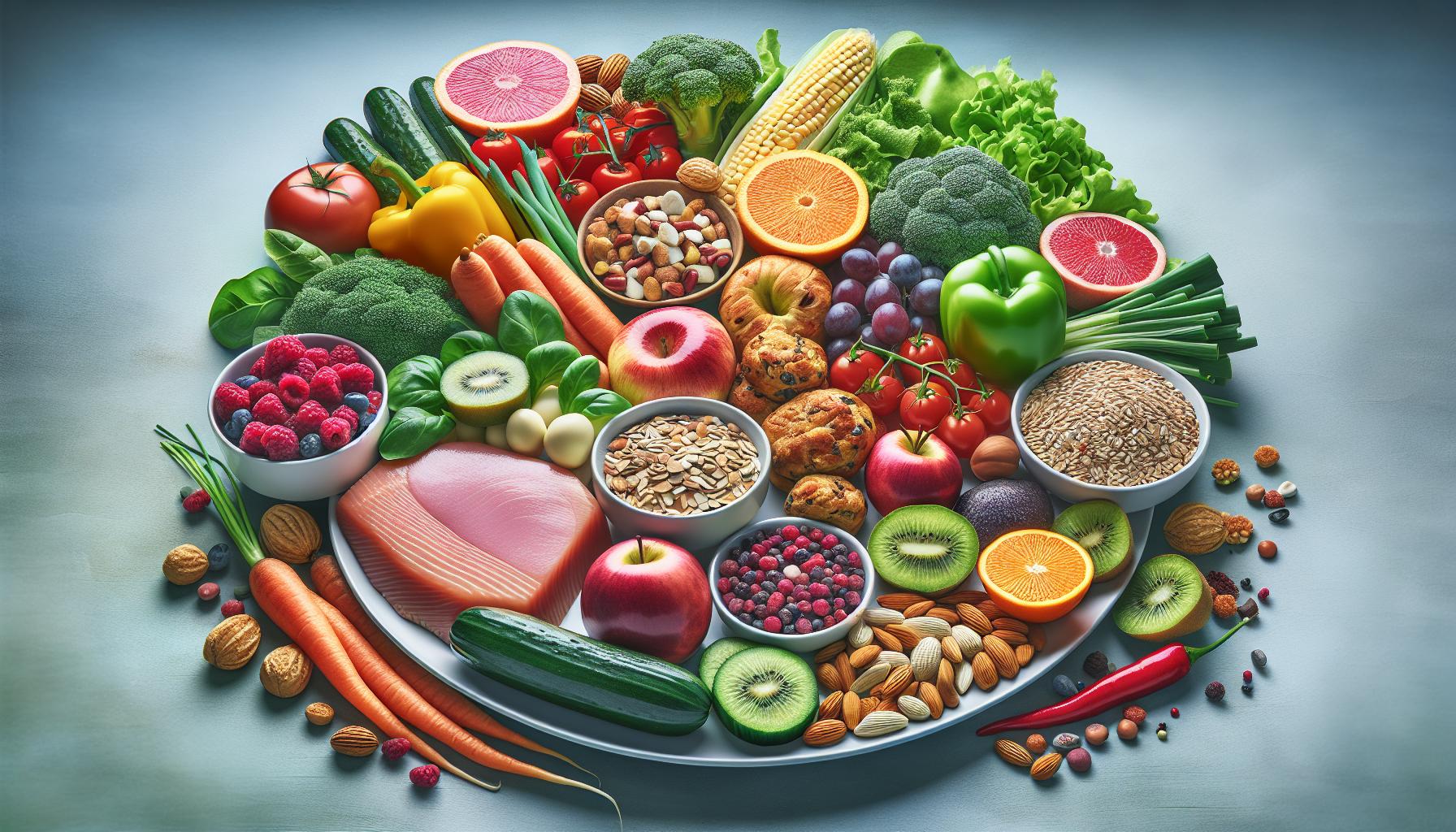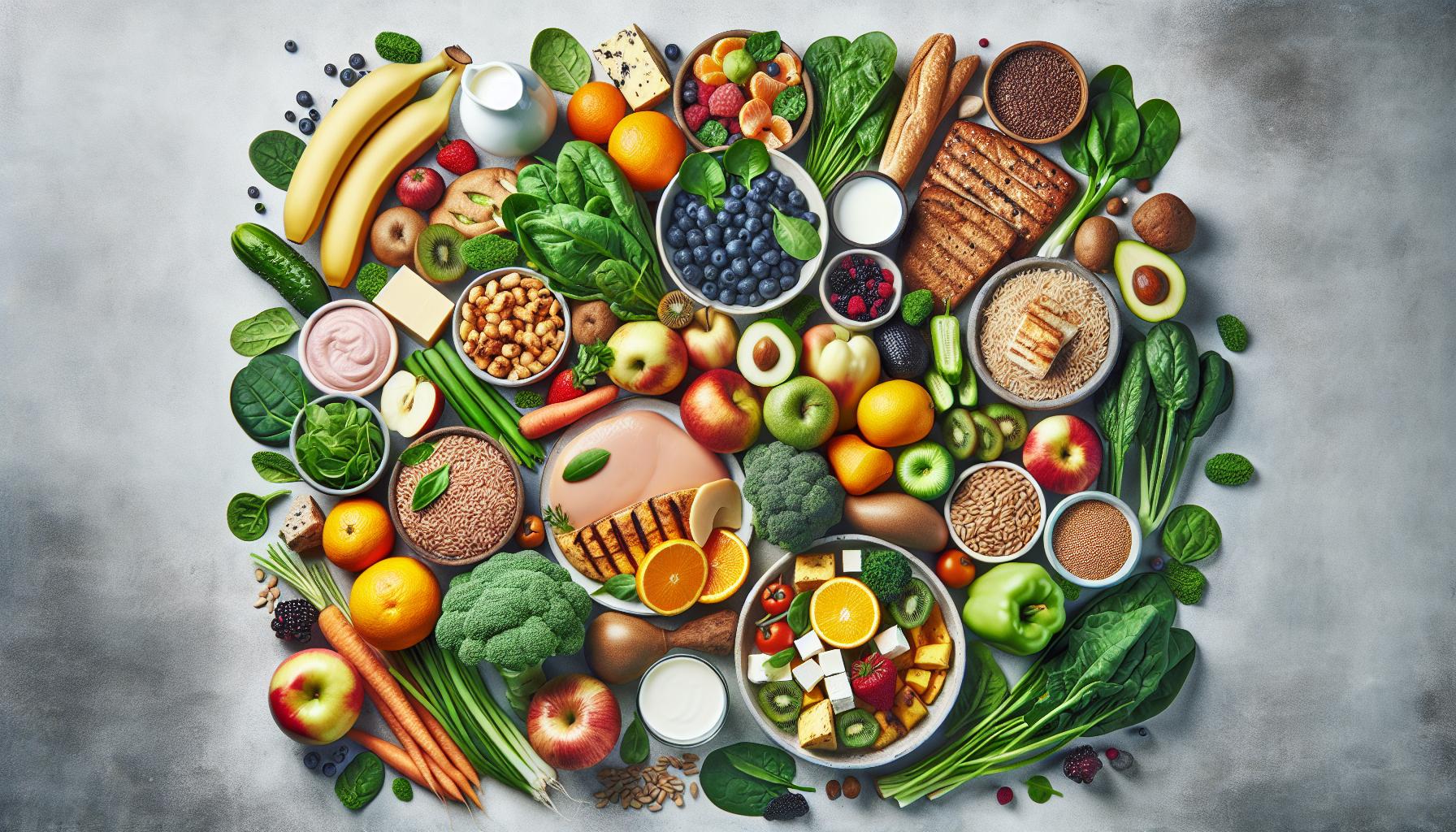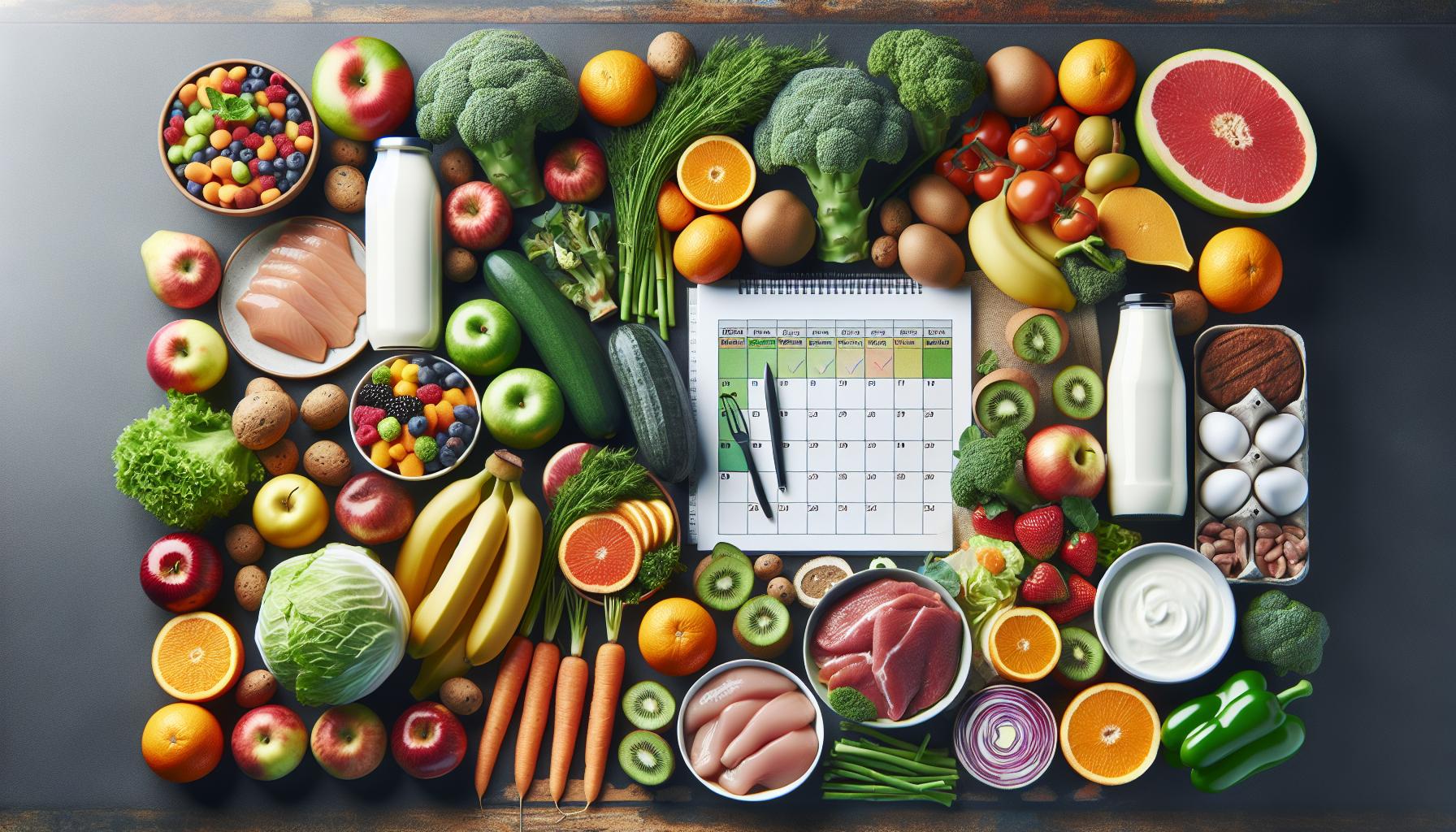Understanding Nutrition Basics
Exploring the world of nutrition can feel like a maze. With so much information on what to eat and what not to eat, it soon feels all too complicated. But, with some basic understanding, you’ll soon find your compassionate nutrition companion right here.
Macronutrients vs. Micronutrients: What You Need to Know
How about we start with Macronutrients and Micronutrients. “Macros” and “Micros”, as they’re fondly called, are like building blocks of your diet. Macronutrients, the big guns, provide energy. We’re talking carbs, proteins, and fats. Now, Micronutrients have no less important role, even though they’re needed in smaller amounts. Vitamins, minerals – these are true multitaskers, often working in synergy, like a well-tuned orchestra. Do you need supplements? Well, deficiencies aren’t that common if your diet is balanced and varied. But hey, there’re always exceptions and special circumstances.
The Role of Water in Your Diet
Next, let’s wade into the watery bit of your diet. Water, the lifeline, is far from an ‘optional’ element. It takes centre stage in keeping our bodies hydrated and systems working smoothly. Aim to drink at least 6 to 8 glasses of fluid every day but remember, not all drinks are created equal. Swing towards healthier choices like water, lower fat milk, tea, and coffee. Be mindful of drinks high in fats, sugars, and empty calories – they might taste divine but aren’t the best hydration buddies. Also, when the sun’s blazing down or you’ve hit the treadmill, you’ll need to up your fluid game. Drink up to keep the balance!
Reading and Understanding Nutrition Labels
Finally, that tiny grid on the packages – Nutrition Labels. It may seem overly technical at first, but it’s nothing more than a fact sheet of what’s inside. Learn to read them, understand the portion sizes, and keep tabs on fats (especially saturated ones), sugars, and salt content. Remember, the numbers are usually based on an ‘average’ diet – about 2000 kcal a day. Be savvy about your calorie intake based on your needs, whether you’re planning to maintain, lose, or gain weight.
Exploring Popular Diets

You know that macronutrients and micronutrients are essential, and you’re now keeping an eye on your fat, sugar, and salt intake. Well done! Now, it’s time to investigate deeper into the area of nutrition by looking at some popular diets and their benefits.
Ketogenic Diet: An Overview
You’ve probably heard about it, but what is the ketogenic diet really about? With this diet plan, it’s all about a shift in your fuel burning processes. Your body becomes a fat burning machine! You’ll be cutting the carbs to less than 50g a day, which is about a 10% contribution to your total calorie intake.
When you drastically reduce carbs and replace them with fat, your body enters a state known as ketosis. Here, you’ll burn fat for energy instead of carbohydrates. This comes with weight loss benefits and could also bring improvements in various health aspects such as blood sugar control and cholesterol levels.
The Mediterranean Diet for Heart Health
How about getting some sun in your plate? The Mediterranean diet, as luscious as its origins, is widely regarded as beneficial for heart health. It’s all about having a balanced intake of fruits, vegetables, whole grains, and healthy fats (you know, the goodies like olive oil!).
The key takeaway for the Mediterranean diet is its emphasis on a lifestyle approach to healthy eating. It encourages sociable meals and physical activity alongside a diet primarily focused on plant-based foods. So, you see, it’s not just a diet, it’s a lifestyle!
Plant-Based Diets: Benefits and How to Start
Meanwhile, others are embracing plant-based diets, reeling in the benefits of vegetables, fruits, whole grains, and legumes. This doesn’t mean you’re strictly turning vegan or vegetarian though. Simply, it’s about prioritising a higher consumption of plant-derived foods.
These diets can provide an abundance of nutrients, reduce the risk of chronic diseases and aid weight control. To get started, you can gradually increase your intake of plant-derived food in your meals. Why not try a meatless Monday, or substitute your dairy milk with plant-based alternatives? Remember, every little change counts towards better health!
You’ve now navigated through the ocean of macronutrients, micronutrients, hydration and even explored some widely adopted diets. Ready for the next stage of your nutritional adventure?
Nutrition for Specific Goals

When it comes to achieving your specific goals that is either losing weight, gaining muscle, or simply increasing your athletic endurance, it’s important to align your nutritional intakes.
Weight Loss: Healthy and Sustainable Strategies
You’ve probably heard the phrase “you are what you eat”. For weight loss, it’s not just about eating less — it’s also about eating right. A calorie is not just a calorie. The type of calories and when you eat them can make a big difference. Case in point, maintaining weight requires a balance of energy intake and consumption. So, if you’re burning 2000kcal per day, eating the same amount helps maintain your weight.
But, for weight loss, you’ll need to create a deficit. That means eating less than your daily energy expenditure. Take a mindful approach of what you’re eating. High-calorie nutrient-poor foods like oils and spreads should be limited. For example, men should consume particularly no more than 30g of saturated fat a day and women, even less – around 20g. Remember, small changes can make a big difference.
Building Muscle: Nutrition for Strength
If you’re looking to bulk up, your caloric intake needs to be in surplus. That’s a fundamental rule, right along with regular strength training. Stepping up the calories helps in weight gain but it’s not an open invitation to binge on junk. Aim for balanced meals that are high in protein (for tissue repair and growth) and providing enough energy for your workouts and recovery.
Nutrition for Endurance Athletes
Finally, if you’re an endurance athlete, your body is your vehicle, and what you’re putting into the gas tank makes a big difference to your overall performance. You’ll need more nutrients overall, with an emphasis on both quality carbohydrates to fuel your muscles and healthy fats to keep your brain sharp and reduce inflammation. Hydration is key – it’s recommended to drink at least 6-8 glasses of fluids every day. While water is the best option, low-fat milk and other low-sugar drinks can also be chosen.
The right nutritional balance is an incredibly powerful tool for achieving your goals. Tailor it to your needs, listen to your body and remember to enjoy the journey. As you progress further, your nutritional needs might evolve – so keep the flexibility and adjust when needed.
Special Considerations in Nutrition

If you’re looking to optimise your diet, you should aware of the special considerations in nutrition. These involve managing food allergies and intolerances, understanding the variances in nutritional needs throughout your life cycle, and figuring out if supplements are beneficial for you.
Managing Food Allergies and Intolerances
If you’ve got food allergies or intolerances, nutrition management can be a bit tricky, but certainly not impossible. It’s paramount to avoid problem foods, while ensuring you’re not missing out on essential nutrients. It’s easy to fall into the trap of dietary monotony, eating the same safe foods over and over. But, you’ll want to ensure your diet is diverse and nutritionally balanced, giving your body what it needs to thrive.
Nutritional Needs Throughout the Life Cycle
If there’s one thing constant in life, it’s change – and your nutritional needs are no exception. From infancy through old age, your dietary needs evolve. Infants and children require nutrient-rich foods for growth and development, while adults may need to focus on maintaining their health or managing chronic conditions.
Table: Nutritional Needs Throughout the Life Cycle
| Age Group | Nutritional Focus |
|---|---|
| Infants | Nutrient-rich foods for growth |
| Children | Balanced diet for growth and development |
| Adults | Maintenance of health, managing chronic conditions |
| Elderly | Nutrient-dense foods to combat frailty |
Supplements: Do You Need Them?
Before you start popping pills, get clarity on this – supplements aren’t a replacement for a balanced diet. Though they can fill nutritional gaps, over-reliance can lead to overconsumption of some nutrients, neglect essential food group, and even potential side effects. So, while they’re often touted as a ticket to optimal health, it’s smart to approach supplements with a good dose of scepticism and a preference for getting nutrients from food first.
As your personal nutrition journey unfolds, remember to keep these special considerations at the forefront. Introduce necessary tweaks, to ensure your diet supports you, whatever the stage of life you may be at. That way, you’re not just eating, but eating intelligently. So keep learning, adapting, and nourishing yourself for the journey that lies ahead.
Practical Tips for Healthy Eating

Keeping up with a balanced dietary strategy amidst your bustling schedule might feel like a mountainous task. Hence, we bring you practical tips that can help you manoeuvre your nutritional needs effectively.
Meal Planning and Prep for Busy Lifestyles
A smart way to keep your nutrition on track is to plan your meals and prep for them in advance. When it comes to meal planning, it’s crucial to ensure that you’re consuming the right amount of calories based on your lifestyle.
Here’s what you need to remember:
- Men should consume approximately 2500 calories a day (10,500 kilojoules).
- Women should aim for around 2000 calories a day (8400 kilojoules).
But, most adults in the UK are eating more calories than they need and should aim to reduce their intake. Dealing with fats can be quite tricky as they are high in calories. To maintain a healthy weight, an average man should have no more than 30g of saturated fat a day, and an average woman should limit herself to 20g.
Healthy Snacking Ideas
One must invest in healthy snacking, as it helps strike a balance during meal times. You can replace high caloric munchies with lower-fat dairy products, lean meats, fruits, and vegetables. Sodas and lattes packed with sugar and fats are real villains when it comes to healthy eating. Instead, opt for tea, coffee and sugar-free soft drinks. Ensure your combined total intake of drinks from fruit juice, vegetable juice, and smoothies does not exceed 150ml a day.
Exploring Eating Out and Social Events
Set a rule for yourself – treat, but do not cheat. Make wise decisions with your meals. Bear in mind the same principles of healthy eating apply when eating out. When at social events, stick to consuming the right portion sizes and avoid being tempted by unhealthy choices around you.
Be cautious with processed food as it can contain high amounts of salt. Adults and children aged 11 and over should consume no more than 6g of salt (about a teaspoonful) a day.
By skilfully exploring through restaurant menus and social gatherings, you’ll find that maintaining a healthy lifestyle is perfectly achievable.
The Future of Nutrition and Diet
You’ve got the tools to take control of your health through nutrition. It’s all about planning ahead, keeping an eye on your calorie intake and opting for healthier snacks. Remember, it’s not just about avoiding unhealthy foods; it’s about embracing the good ones.
Processed foods can be a quick fix, but they’re often high in salt. Try to limit these as much as possible. When you’re out and about, or attending social events, you don’t have to throw caution to the wind. Make wise food choices and you’ll maintain a balanced diet.
The future of nutrition and diet is in your hands. You’ve got the knowledge, now it’s time to put it into practice. By following these guidelines, you’re not just managing your nutritional needs, you’re paving the way for a healthier lifestyle.

